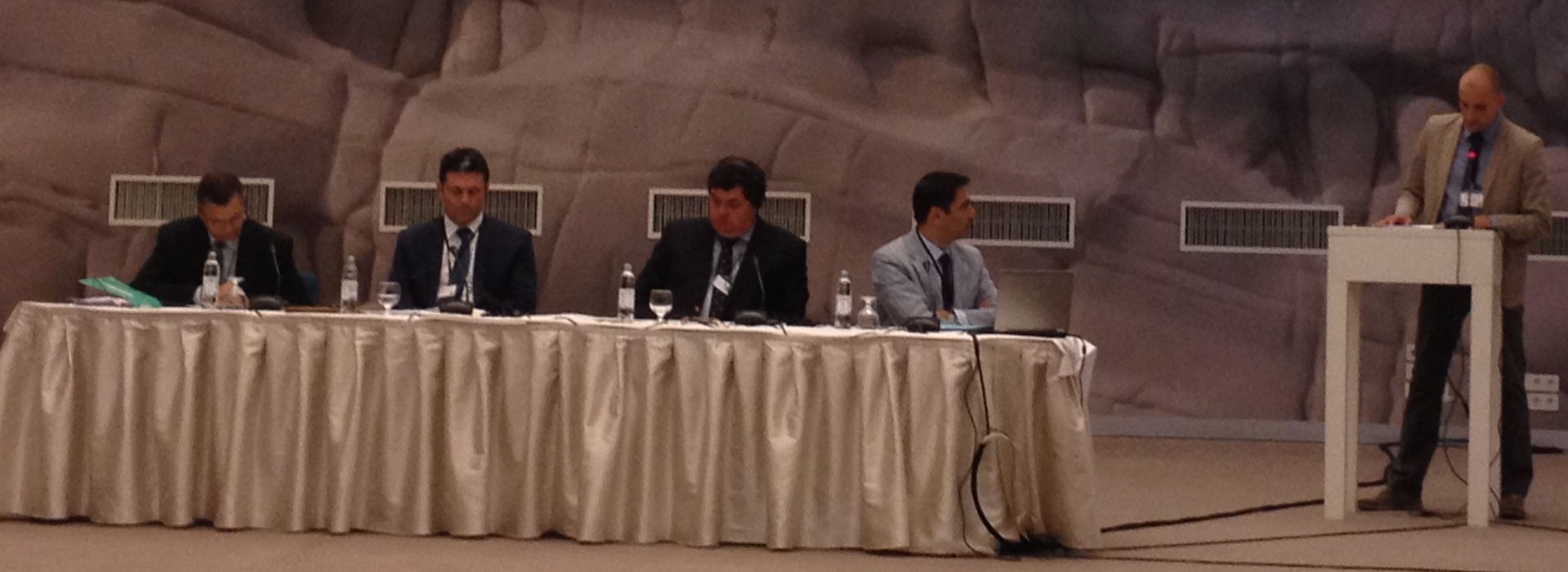Representatives of stakeholders from every branch of the olive and olive oil sector – producers, processors, marketers and consumers – recently convened to discuss a slate of issues on the agenda at the 43rd meeting of the IOC Advisory Committee on Olive Oil and Table Olives.
Hosted by the Croatian Chamber of Economy, the meeting took place in Split on 22 and 23 May and brought together representatives not only from IOC member countries but also observers from Australia, Brazil, India, Japan and the United States.
Business on the conference table included the figures for world production, consumption, imports, exports and stocks of olive oil and table olives in the current 2013/14 crop year, with the focus on key markets such as the United States, the European Union, Brazil, Japan, China and Australia.
The issue of flavoured extra virgin olive oils and infused olive oils was also on the agenda. After lengthy discussion, the committee decided to recommend the IOC to remind its membership of the terms of the IOC trade standard, which it is mandatory for IOC Members to apply in their international trade. According to the standard, extra virgin olive oil is the juice of the olive and nothing else. Olive oil is defined solely as the blend of refined olive oil and virgin olive oil without the addition of any other product.
Committee representatives also had the opportunity to discuss proposed changes (new or revised methods of analysis, parameters or limits) in IOC standards. In a drive for greater transparency, the IOC recently approved a procedure for publicising such proposed changes and inviting feedback from industry and science before final approval. In the opinion of the committee, it is essential to persuade all the non-IOC countries involved in the olive oil trade, especially importer countries, to adopt IOC standards in their legislation.
The team from the IOC Executive Secretariat gave an overview of IOC technical assistance, training in the chemical or sensory analysis of olive oil and the grant funding scheme for generic promotional activities in member countries. They reported on the IOC promotion campaign underway in Brazil and invited the private sector to join forces with the IOC and so create synergies.
The second day of the meeting was set aside for a field trip to visit olive groves and olive oil mills. Besides getting an overview of olive growing and the olive and olive oil industry in Croatia, participants had the chance to taste some excellent produce and enjoyed the warm hospitality of their Croatian hosts.
About the IOC Advisory Committee
This committee is a fundamental talking partner for the IOC with the private sector. It was established to allow the IOC to hear the voices of stakeholders and to keep abreast of issues and developments of concern to the sector. At present, there are 102 places on the committee.









